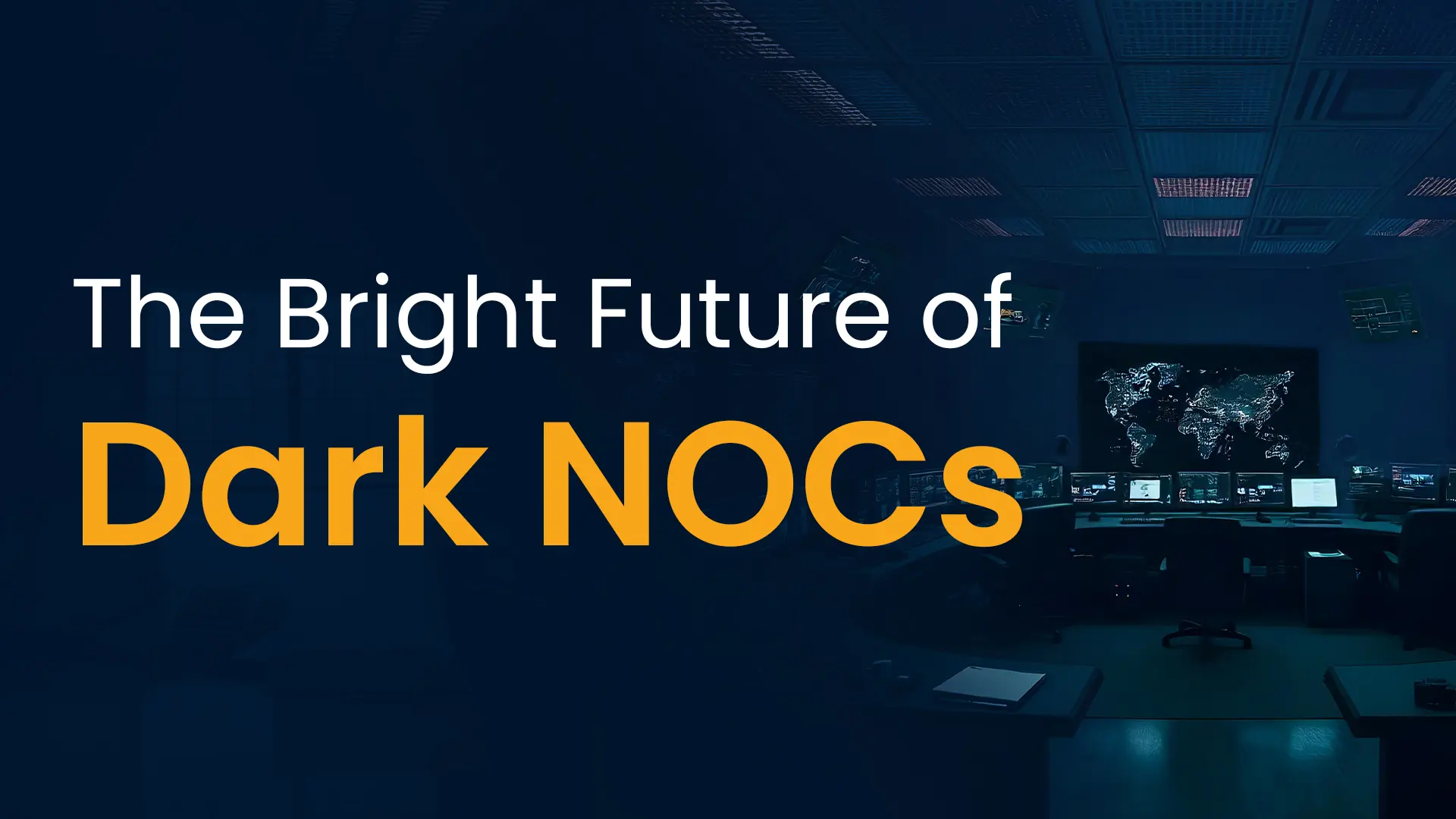Global Capability Centers (GCCs) are not a new concept. In a pre-pandemic world, these were large facilities created by the parent company to handle operations. This could include offering support in the form of back-office functions, support for corporate management, or even contact centers. Information Technology (IT) support was another crucial service outsourced to GCCs. It ranged from developing and maintaining apps to handling remote IT infrastructure and creating help desks. GCCs existed to ensure sustained growth and steady productivity. Several companies also came forward to use GCCs as their Centers of Excellence (CoEs) – using them to drive automation, innovation, and even analytics.
Today, India is home to 1800 GCCs, employing close to 1.2 million people, across a wide range of sectors. According to a NASSCOM-Deloitte report titled GCC Value Proposition in India, the GCC sector has the potential to scale up to as much as $60-$85 billion over the next six years.
As a concept, GCCs were well-oiled machines until the pandemic hit global economies in 2020. With most GCCs shutting down their facilities to switch to work-from-home (WFH) mode, GCCs had to adapt to a work scenario that changed overnight. Capgemini’s report titled “GCCs – Turning the Covid Challenge into Meaningful Change” says that, as a reaction to the pandemic, as high as 95% of the GCC industries displayed a phenomenal resilience to the sudden changes in demands stemming from it. While the immediate action was reactive, today GCCs focus on proactively adapting to the changing economic environment with a borderless approach to operations. Those GCCs, the report says, which had strong business continuity and disaster recovery plans (BCP/DR) plans and could offer WFH to their employees, fared particularly well in terms of response to the pandemic.
Reports have shown that over 97% of employees in the Offshore Development Center (ODC) sector felt that there was little to no change in their work culture, and 98% of companies today are looking to actively recruit more employees in the sector. As more and more Multinational Corporations (MNCs) make the digital move and equip themselves with the power of Artificial Intelligence (AI), they all look forward to their GCCs. They seek to find and apply appropriate emerging technologies to enable quick transformation.
Analyst firm Nomura reports that GCCs have a much faster revenue attribution growth rate in comparison to larger outsourcing counterparts. It stands at a 12.4% CAGR for GCCs compared to just 10.7% for service providers in the last five years. Around 27% of the US-based Fortune 2000 companies have GCCs currently set up in India. Over 50% of Fortune 2000 companies are currently planning to move their vendor management to their offshore GCCs to bring down outsourcing expenses and benefit from the synergies it enables. In this way, GCCs are increasingly going to become a centralized technology procurement arm for MNCs.
Different Criteria to Determine a Right Partner for Your GCC
With GCCs becoming more important in the value hierarchy of an organization, they have developed a digital strategy to keep their companies ahead of the game and to help with practical implementation. In the Ernst & Young 2020 paper titled Global Capability Centres (GCCs) Pulse Survey 2020, 68% of GCCs have ranked innovation and process excellence as a key consideration for their setup. Also, 55% list technology enablement, 34% enhanced services portfolios, 24% skill development, and 21% risk optimization, as other considerations. Over 80% of the participants of this survey felt that having global process ownership was a key enabler to being more closely integrated into their parent company. Over 73% of companies have a plan to establish Centers of Excellence with their GCC and expect it to be part of the portfolio of services.
With such a growth trajectory for GCCs, how does a business go about selecting the right partner? Here are some criteria you can keep in mind.
Read More: Everything About the Different Types of Salesforce Clouds
Expansive and Varied Industry Expertise: An ideal GCC partner has advanced expertise across several industries while specializing in a few. For instance, when hiring professionals, companies often look for what is known as a T-shaped person, where the vertical line of the T represents strong knowledge in one field and the horizontal line represents the person’s ability to think innovatively, apply his experience, and branch out where needed. Companies need their GCCs to be like this T-shaped employee.
The GCC partner you are looking for must be able to build a product or service innovatively, providing you with multiple possibilities for your requirements. This ability comes from vast and varied experience. It enables recognizing patterns that may lead to a problem and providing a solution that deals with it. A GCC needs to have a strong core to be able to chart the path your requirement takes from the innovation stage to its final target audience.
Works with Multiple Technologies: In the current atmosphere, a company cannot afford to work with a GCC that works with a fixed set of technologies. Every product or service can have multiple ways in which it can be built. However, there can only be one ideal way. How a GCC determines this ideal route is what you need to examine when looking to build a strong GCC. The company you outsource to needs to be well-versed in multiple technologies and provide you with the ideal solution and a framework to achieve it.
If a GCC works on limited technological infrastructure, it may result in solutions that are not current with market requirements and not ideally suited to your purpose. Being technology agnostic is a feature you need to look for when working to find the right GCC partner.
It is also important for the GCC processes to be transparent. You may not possess all the technical prowess to understand the technologies needed to create your service/product, but a transparent process will keep you abreast of how and why a GCC is working the way it is on your project.
Delves Deep into Your Business: A business can outsource to any company; however, a great product or service can be tailored and delivered only when the collaborating company delves deep into your business. Look for a strategic outsourcing partner who works especially hard on understanding the nuances of your business, your goals, and your aspirations for what you are creating. A large part of being able to deliver quality services and products comes from investing the time to understand a company from the foundation up. When you look at GCCs, keep a close watch on the key questions they ask – about your products, your customers’ interactions with them, the extent of your involvement, etc. A GCC should be able to constantly delve into your company and its offerings and find problem areas that will need addressing.
A GCC at the Right Location: Though the business world has become borderless to a large extent, having a GCC in a critically important location can be beneficial. This is especially true for companies that are looking to enter a new region and are looking for local expertise to get a better perspective on how they can conduct their business. Having a strategically located GCC makes it easier to build a brand, network locally, understand cultural nuances, and build a whole new customer base.
Read More: A Complete Guide to IT Outsourcing
With these key pointers in mind, a company will find itself in a good position to narrow down on a compatible GCC and enter into a strategic alliance with them. The search for a GCC partner, especially in these times can be daunting, but with the right approach, it is not an impossible task.
Best Practices to Work Well with Your GCC
Every GCC is structured differently and has its priorities created and assigned based on several factors. However, there are some best practices that you can implement when working with your GCC. Here is a look at them.
Create a Clear Strategy to Convey your Vision to Your GCC
A company may work with a GCC for a variety of reasons – to increase operational efficiency while lowering costs, to utilize a skilled talent pool, to bring in work standardization, and to ensure better compliance and governance. Your company must create a clear CEO-driven mandate that highlights where the GCC fits into the scheme of things and how their work is critical to the company matching up to global standards.
Building a Strong Company-driven Branding
A GCC gives you access to a quality talent pool. For the GCC to hire such qualified innovators, they must be culturally aligned to the parent company. This means they need to be modeled on the core values of the organization. To ensure this happens, parent companies need to have a strong sense of value and offer ideal working conditions. Going beyond the scope of work by providing a basis for creativity and innovation, participating in Corporate Social Responsibility (CSR) programs, and creating a great work culture with an attractive pay package that reflects industry standards can attract talent to the GCC. Building a strong company-driven brand provides a strong base to GCCs and ensures that they are always culturally aligned with the parent company.
Ensure that the GCC is a Compliant Legal Entity
There are many ways in which GCCs are tied to their parent companies. In most cases, GCCs are wholly owned by them. However, there are several models such as Joint Ventures (JVs) and Build-Operate-Transfer (BOT). Incorporating a GCC in India is a complex process and includes several formalities. Ensuring that all the paperwork is done accurately and is regularly updated is essential to lowering costs of compliance in the long run.
Appoint a Strong Human Resources Leader
Two appointments in a GCC are crucial to its ideal functioning. The first is the head of the GCC center and the second is a strong Human Resources (HR) leader. These two professionals need to share a clear understanding of the company’s requirements and culture, and align all their potential hires with it. When companies create GCCs in India, they often deal with unique human resource laws and practices. A strong HR head ensures that hires comply with their clients’ global HR laws.
Creating Ideal Work Cultures and Reducing Attrition
India is home to a vast GCC community. According to a Nasscom report, there are over 1430 GCCs currently, employing 1.38 million people as of FY21, with a revenue potential set to touch $35.9 billion in 2021. But India faces high attrition rates due to the demand for skilled workers. The Great Resignation – where a majority of the workforce is slated to resign from their jobs as the impact of Covid-19 subsides – is a reality across the globe. Work-life balance is one of the key reasons for these resignations. According to Microsoft’s 2021 Work Trend Index, as high as 62% of Indian workers are planning to switch jobs soon. On the flip side, the demand for IT-BPM professionals in India is expected to grow by as much as 7.5% according to a report by TeamLease. The report says that the demand will grow by 17% year-on-year all through 2022, and there will be massive hiring taking place in IT services and GCCs. With such trends in the offing, GCCs must create and nurture a great work culture, consistent with their parent company’s ideals.
Installing Standard Operating Procedures (SOPs)
Creating and maintaining a clear set of SOPs covering all operational functions paves the way for the standardization of processes across the board. This is particularly critical to the hiring process where SOPs need to be in place for everything from hiring to retirement. The HR department can work on building employee committees as GCCs scale up to meet the parent company’s requirements. There needs to be a regular review of SOPs – with all non-compliances flagged and corrected.
Your GCC is a Transformation Engine
What essentially began as a means to reduce operational costs has today grown to become a transformation engine for parent companies. Even if a GCC is set up with the sole intention of reducing costs, taking a long-term view of it to improve technical prowess, better thought leadership, incubate innovation, and gain access to a high-caliber talent pool, is key to your success. Today, India has among the best technical talent, especially in new-age technologies of data and digital transformation. Professionals adept at Artificial Intelligence, Machine Learning, Big Data analysis, R, or SAS programming are all available to help a GCC scale up.
Post-Covid, GCCs have grown in stature and climbed the value chain ladder. Indian GCCs today are on par with the parent organization in terms of technical expertise. With the easy availability of professionals in newer technologies like AI and ML, analytics, and cloud computing, GCCs can scale up and have a say in driving global strategic agendas.




